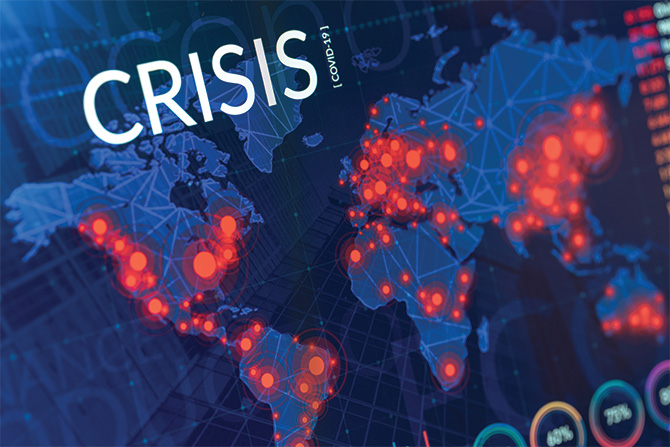By Noah Wilcox, ICBA Chairman
“Community bankers have answered the call of duty to do what’s right by our customers. For this exam cycle, let’s make sure we’re covering our bases.”
This year, as turmoil arose from the COVID-19 pandemic, community bankers stepped in to respond to the needs of our communities. As this health crisis continues to wreak havoc on our economy, we fight on. We remain in the trenches for our customers, granting accommodation requests and helping them navigate changes to their business models.
As the pandemic persists, we have extended our efforts to both business and consumer clients. We have identified ways to help, not for our banks’ gain, but because it’s in our DNA as community bankers to do what’s morally right. For this, we should be heralded, not penalized, but that’s precisely where the friction lies: How examiners interpret our actions may not align with the vision behind them.
Since August, I’ve participated in weekly calls with my regulator, and new issues arise in each one. For example, when we discussed Paycheck Protection Program loans, I argued that because the government backs them, they technically shouldn’t be treated as risky assets on our books, but I’m not certain our examiners will see it that way. The message from Washington — get the funds immediately into the hands of the businesses that need them — may get lost in translation when the field exam staff dive deeper into details.
Then, as we respond to consumer accommodation requests, we’re hearing cautionary counsel regarding consumer protection and fair lending laws. Regulators want to see that we have a systematic process in place to evaluate every request and that we assess each one through a consistent lens. While fairness and consistency are the primary goals, we’re also relationship bankers who work to do what’s right by our customers. But given the regulator’s signals, it seems that doing what’s right needs to be documented.
So, as we explore regulation and compliance topics in this month’s issue, let’s consider the need to document as a constant theme. For example, how you approach accommodations, how you assess the accommodation request and how you evaluate the risk will be scrutinized. In short, we must have a standardized process that demonstrates that our decisions relative to these accommodations are safe, sound, prudent and appropriate.
Our actions speak for themselves, but documentation can back that up. Our hearts are in the right place, and community bankers have answered the call of duty to do what’s right by our customers. For this exam cycle, let’s make sure we’re covering our bases.
My Top Three
Here are my top three tips for bankers in preparing for this
year’s exams:
- Develop and follow a documented methodology for accommodations.
- For consumer loan accommodations, be aware of consumer protection and fair lending laws.
- Remember, you’re writing for the regulator. Keep it succinct and straightforward.

Noah Wilcox, ICBA Chairman
Connect with Pres@NWWilcox
This story appears in Issue 3 2020 of the Community Banker Magazine.







